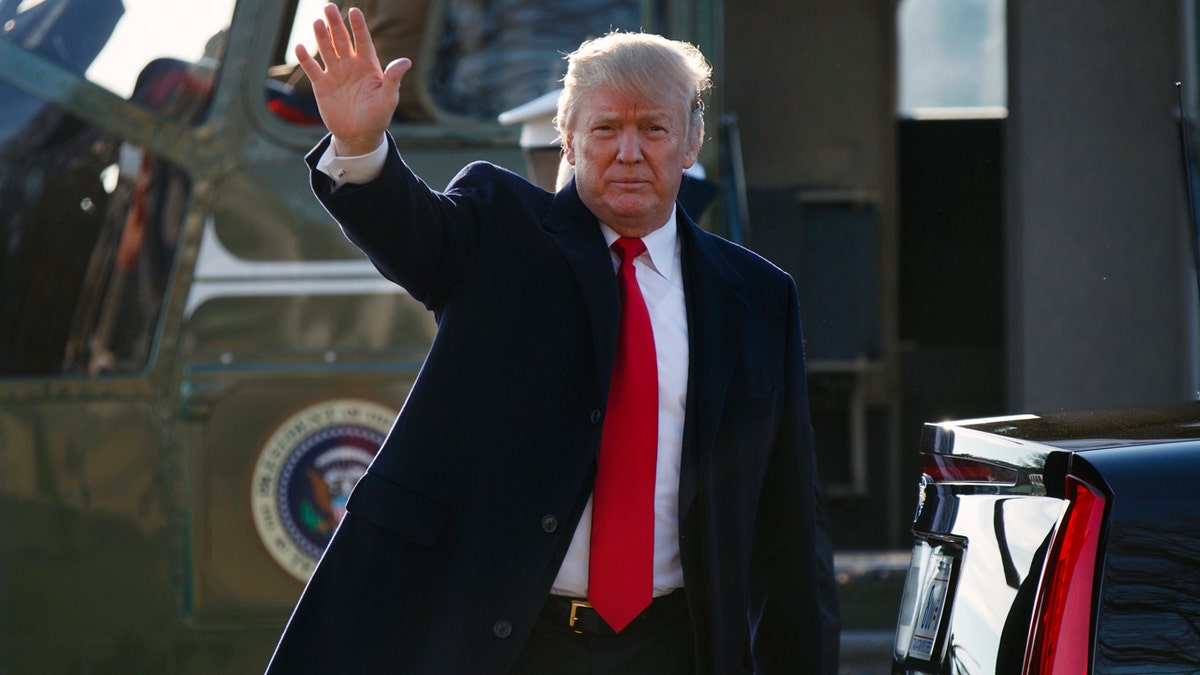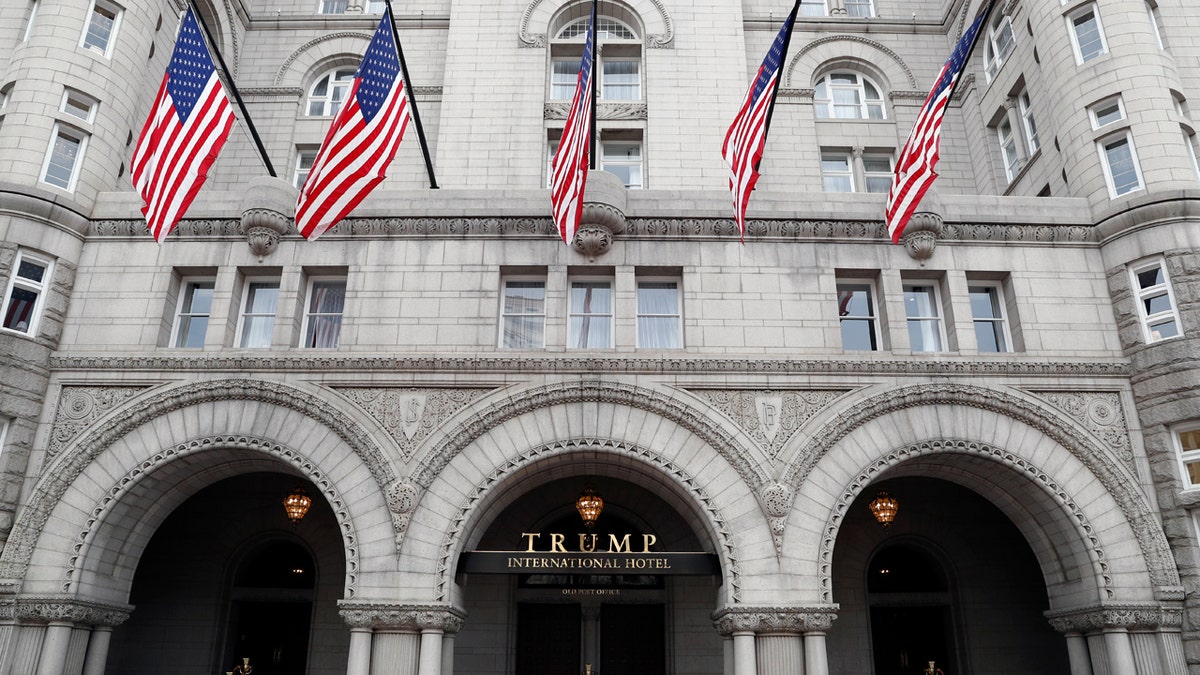
FILE -- Dec. 21, 2017: President Trump steps off Marine One after landing at Walter Reed National Military Medical Center in Bethesda, Md. (AP Photo/Evan Vucci)
NEW YORK – Restaurant workers, a hotel event booker and a watchdog group who say President Donald Trump has business conflicts that violate the Constitution cannot sue him, a New York judge ruled Thursday.
U.S. District Judge George Daniels said it was too soon for the lawsuit to be considered by the courts, particularly because Congress had not considered the issue.
The lawsuit earlier this year alleged that Trump's "vast, complicated, and secret" business interests were creating conflicts of interest. It claimed the business ties violated the Constitution's ban against taking foreign gifts and money without Congress' permission, including for hotel stays or office leases.
Trump had called the lawsuit "totally without merit" while aides to the Republican president dismissed it as politically motivated.
Justice Department lawyers had argued that the plaintiffs did not suffer in any way and had no standing to sue, and that it is unconstitutional to sue the president in his official capacity.
Citizens for Responsibility and Ethics in Washington originally brought the lawsuit. It was later joined by Restaurant Opportunities Centers United Inc. and two individuals in the hotel industry.

Trump International Hotel in Washington D.C. (AP)
"While today's ruling is a setback, we will not walk away from this serious and ongoing constitutional violation," said Noah Bookbinder, executive director of Citizens for Responsibility and Ethics. "The Constitution is explicit on these issues, and the president is clearly in violation. Our legal team is weighing its options and will soon lay out our decisions on how to proceed."
The lawsuit cited the little-known domestic and foreign emoluments clauses of the U.S. Constitution.
Trump has made appearances at his resorts, golf clubs and a hotel in Washington frequently since he was sworn in as president in January.
Other lawsuits have made similar claims, including a lawsuit in Washington by the attorneys general of Maryland and the District of Columbia.
In his ruling, Daniels said the intended purpose of the foreign emoluments clause was to prevent official corruption and foreign influence. He said the purpose of the domestic emoluments clause was to ensure presidential independence.
Daniels noted that with Congressional consent, the Constitution allows federal officials to accept foreign gifts and emoluments regardless of its effect on competition.
"There is simply no basis to conclude that the hospitality plaintiffs' alleged competitive injury falls within the zone of interests that the Emoluments Clauses sought to protect," the judge wrote.




















